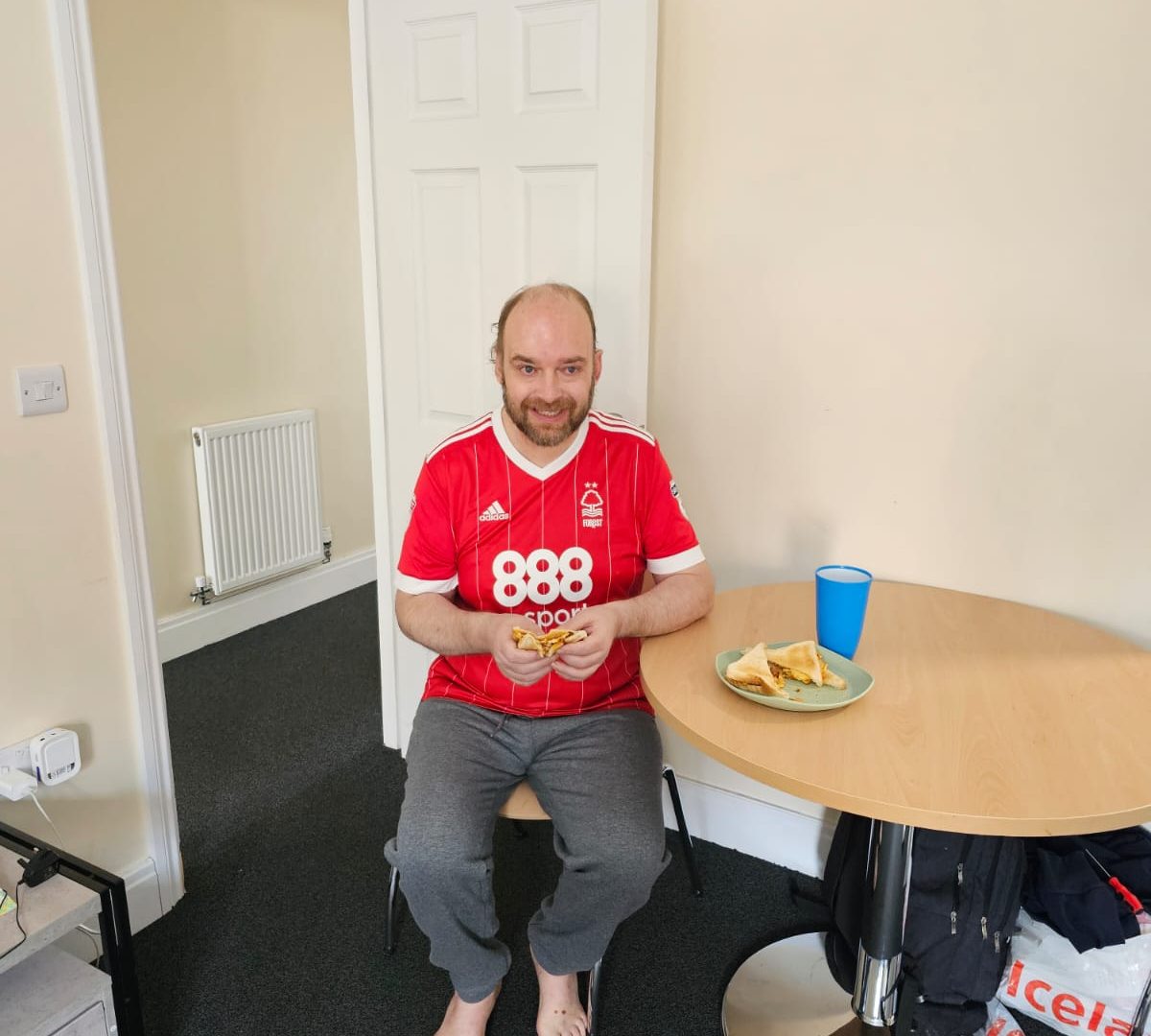
Gradual Medication Reduction and Supportive Interventions Transform Richard’s Life
We wanted to highlight the issue of over-medication and share Richard’s story.
Richard lives in one of our supported living services in Nottingham. We spoke to area manager Kim and service manager Nicola who have been working closely with Richard since he joined us.
Kim said: “When Richard first came to us, he had previously been sectioned under the Mental Health Act. He was heavily medicated and was struggling, he was hair pulling or would raise his hands and say ‘Attack’, and would continually ask for medicine. Unfortunately, the medications he was prescribed did not affect his behaviour or support his mood. In fact, they were exacerbating his problems, leading to the prescription of even more medications. It became a vicious cycle of ‘this one isn’t working, let’s add another.’
“Due to the side effects of his medications, Richard would spend a considerable amount of time sleeping. Some days, he would sleep for up to 22 hours, leaving him drowsy and inactive. He rarely left his room or the house, and even getting up and showered before midday was a challenge. The side effects were massively impacting his quality of life.
“In February, we initiated a meeting with a multidisciplinary team (MDT) of all the people involved in Richard’s care to discuss his medication. We expressed our concerns about his excessive sleeping and the impact on his quality of life. That was followed by a best interest meeting involving Richard’s father, where we agreed to gradually reduce some of his medication.
We put together a four-week plan to taper off one of his medications, and since then he has become more active, regularly going outside, playing basketball and football, and visiting the local shop almost every day. He has also improved his day to day routine, he’s waking up earlier and showering regularly.
“Our approach was based on taking gradual steps with Richard. Initially, we began by taking short walks down to the end of the road, passing by the shop. Then staff would go in and buy something for him, and eventually, Richard gained the confidence to go into the shop himself. We started with our local corner shop and then followed a similar progression with small supermarkets as well, with the aim to get Richard confident enough to go to the bigger supermarkets and do his weekly food shops himself.
“A similar method was used with the football. Staff noticed Richard’s interest in watching the people on the nearby football pitch, so we bought him a football so he could familiarise himself with it at home. Gradually, we took walks to the football pitch, and over time, Richard felt comfortable enough to join in and play football. It’s lovely just seeing him being able to get involved and be out in his local community.
“Since reducing his medication, Richard has been a lot more alert, he’s been able to build proper relationships and engage more with his support team, enhancing the support that he receives.”
Richard’s dad added:
We have seen a big improvement with Richard, especially over the last two weeks. Before his medication was reduced, we would try to take him out but he wouldn’t go anywhere, now Richard will go out with his brother and me, walk to the local pub and happily sit outside, and have a drink.
Richard’s story is a reminder of the importance of person-centered care and the potential for positive change when it comes to mental health. STOMP is a national project involving many different organisations which are helping to stop the overuse of medication, and focusing on helping people to stay well and have a good quality of life. Through initiatives like STOMP, we can continue to work towards ensuring that people receive the appropriate support, allowing them to thrive and lead fulfilling lives.
